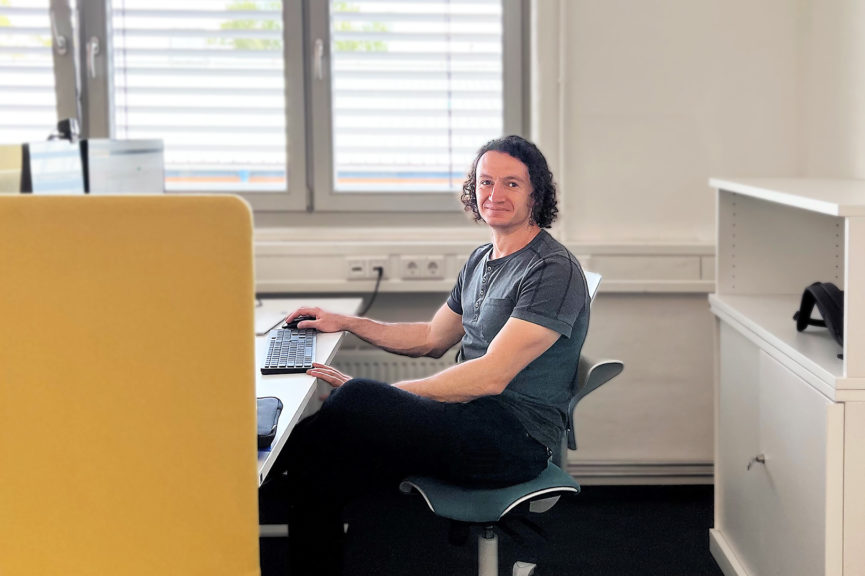Since September, Michael Krawez has been working in the Department of Engineering at the University of Technology Nuremberg. He is the second research assistant to support Founding Chair Prof. Dr. Wolfram Burgard.
Teaching robots how to gain added value from data: This, according to Michael Krawez, is his first research topic at the University of Technology Nuremberg, his focus being on a combination of computer vision and speech processing. Speech models trained to process a high data volume shall be used as a basis to recognize complex semantic contexts in images. This enables robots to intuitively take in their surroundings. “Our daily work at the moment does not only cover research, but also administrative tasks such as preparing courses and lectures and procuring the necessary hardware to drive the Department forward”, the information scientist explains his work at the newly founded university.
Prior to his present assignment, Michael Krawez was a doctoral candidate at the University of Freiburg. In his doctoral thesis, his research focussed on mapping procedures for the localization of robots. His research aim was to simulate lighting conditions in three-dimensional spaces, thereby enabling systems to regognize images fault-free at any time of day.
Having lived in Nuremberg for only a few weeks, he has assimilated well in the Franconian capital: “I especially like the city’s vibrant atmosphere. There is always something going on.”

Since September, Michael Krawez has been working in the Department of Engineering at the University of Technology Nuremberg. He is the second research assistant to support Founding Chair Prof. Dr. Wolfram Burgard.
Teaching robots how to gain added value from data: This, according to Michael Krawez, is his first research topic at the University of Technology Nuremberg, his focus being on a combination of computer vision and speech processing. Speech models trained to process a high data volume shall be used as a basis to recognize complex semantic contexts in images. This enables robots to intuitively take in their surroundings. “Our daily work at the moment does not only cover research, but also administrative tasks such as preparing courses and lectures and procuring the necessary hardware to drive the Department forward”, the information scientist explains his work at the newly founded university.
Prior to his present assignment, Michael Krawez was a doctoral candidate at the University of Freiburg. In his doctoral thesis, his research focussed on mapping procedures for the localization of robots. His research aim was to simulate lighting conditions in three-dimensional spaces, thereby enabling systems to regognize images fault-free at any time of day.
Having lived in Nuremberg for only a few weeks, he has assimilated well in the Franconian capital: “I especially like the city’s vibrant atmosphere. There is always something going on.”